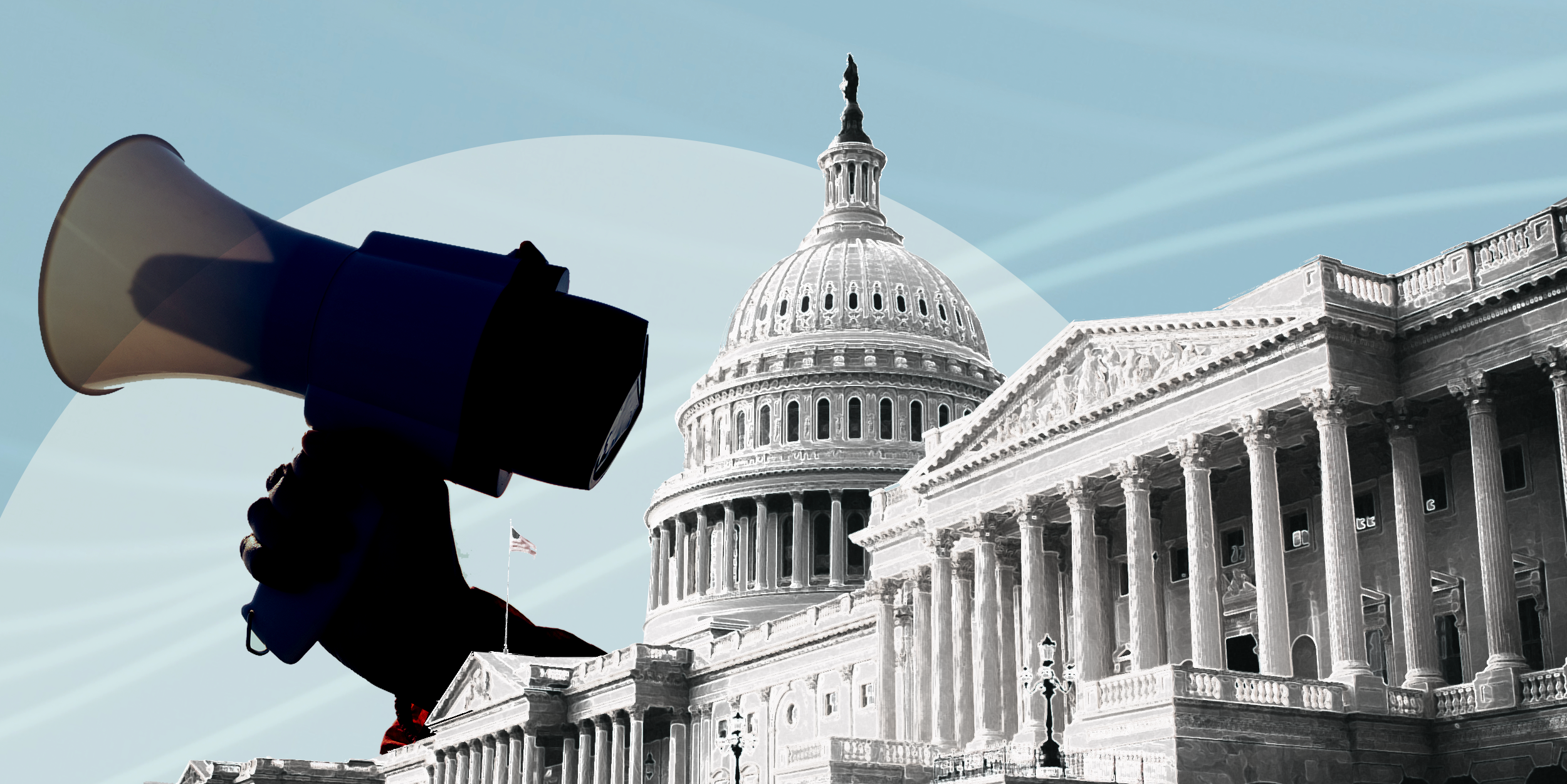Leadership
EIG’s leadership is drawn from a wide array of backgrounds: policy experts, start-up founders, investors, and academics. What they share is a commitment to creating a more dynamic and innovative economy across America.
Economic Advisory Board
EIG’s Economic Advisory Board is comprised of internationally recognized experts from an array of prominent think tanks, academic institutions, and private sector organizations. They have advised top policymakers, presidential candidates, advocacy groups, labor unions, and business associations. In their role with EIG, these experts contribute ideas, author research, and provide research-driven advice to inform the organization’s research agenda. Their affiliation should not be interpreted as an endorsement of any specific idea, and they may, of course, individually dissent on any issue.
Steven J. Davis is a senior fellow at the Hoover Institution and William H. Abbott Distinguished Service Professor of International Business and Economics at the University of Chicago Booth School of Business. He is a research associate of the National Bureau of Economic Research, economic adviser to the U.S. Congressional Budget Office, visiting scholar at the Federal Reserve Bank of Atlanta, elected fellow of the Society of Labor Economists, senior adviser to the Brookings Papers on Economic Activity, and senior academic fellow of the Asian Bureau of Finance and Economic Research (ABFER). He also serves on the ABFER executive committee.
Davis is co-founder of the Economic Policy Uncertainty project, the Survey of Working Arrangements and Attitudes, the Survey of Business Uncertainty, and the Stock Market Jumps project. He co-organizes the Asian Monetary Policy Forum, held annually in Singapore.
John C. Haltiwanger is a Distinguished University Professor in the Department of Economics at the University of Maryland. He is also the first recipient of the Dudley and Louisa Dillard Professorship in 2013. He received his Ph.D. from the Johns Hopkins University in 1981. After serving on the faculty of UCLA and Johns Hopkins, he joined the faculty at Maryland in 1987. In the late 1990s, he served as Chief Economist of the U.S. Census Bureau. He is a Research Associate of the National Bureau of Economic Research, a Senior Research Fellow at the Center for Economic Studies at the U.S. Census Bureau, and a Fellow of the Society of Labor Economics and the Econometric Society. He has played a major role in developing and studying U.S. longitudinal firm-level data. Using these data, he has developed new statistical measures and analyzed the determinants of firm-level job creation, job destruction and economic performance. He has explored the implications of these firm dynamics for aggregate U.S. productivity growth and for the U.S. labor market.
Professor Hubbard is a specialist in public economics, managerial information and incentive problems in corporate finance, and financial markets and institutions. He has written more than 100 articles and books on corporate finance, investment decisions, banking, energy economics and public policy, including two textbooks, and has authored The Wall and the Bridge and coauthored Balance, The Aid Trap, and Healthy, Wealthy, and Wise. Hubbard has applied his research interests in business (as a corporate director consultant on taxation and corporate finance), in government (as a former Chair of the U.S. Council of Economic Advisers and the OECD Economic Policy Committee, as well as Deputy Assistant Secretary of the U.S. Treasury Department and as a consultant to the Federal Reserve Board, Federal Reserve Bank of New York, and many government agencies) and in academia (in faculty collaboration or visiting appointments at Columbia, University of Chicago and Harvard). He is co-chair the Committee on Capital Markets and Regulation and past chair of the Economic Club of New York and the Study Group on Corporate Boards.
William Kerr is the D’Arbeloff Professor of Business Administration at Harvard Business School. Bill is the Unit Head of Entrepreneurial Management, co-director of Harvard’s Managing the Future of Work initiative, and the faculty chair of the Launching New Ventures program. Bill is a recipient of the Ewing Marion Kauffman Foundation’s Prize Medal for Distinguished Research in Entrepreneurship and Harvard’s Distinction in Teaching award. Bill’s recent book is The Gift of Global Talent: How Migration Shapes Business, Economy & Society.
As an economist and attorney, Litan has had nearly four decades of experience in the worlds of the law, economic research and policy, and as an executive in both the private, public and government sectors. Through his extensive publications and many speeches and testimony, he has become a widely recognized national expert in regulation, telecommunications and financial policy, antitrust, entrepreneurship, innovation, and international trade, among other policy subjects. Litan currently is a Shareholder with Berger Montague, based in Philadelphia and several other locations throughout the U.S., where he specializes in large case antitrust litigation. Litan has directed economic research at three leading national organizations: the Brookings Institution, the Kauffman Foundation and Bloomberg Government. He has also been a member of the international advisory board of the Principal Financial Group. Litan is a well-known speaker who has given hundreds of talks during his career before a wide range of audiences in the U.S. and around the world. His TedEx Kansas City talk, “An Economist Who Walks Into a Bar” has been viewed on Youtube over 460,000 times.
Litan has held several appointed positions in the U.S. federal government. In 1993, he was appointed Principal Deputy Assistant Attorney General in the Antitrust Division of the Justice Department, where he oversaw civil non-merger litigation, including the Department’s first antitrust case against Microsoft, and the Department’s positions on regulatory matters, primarily in telecommunications. He also was the Department’s representative to the Administration’s Telecommunications Policy Working Group chaired by Vice President Gore. In 1995, he was appointed Associate Director of the Office of Management and Budget, where oversaw the budgets of five cabinet level agencies. He later was a consultant to the Department of Treasury on financial modernization and the effectiveness of the Community Reinvestment Act and co-authored several reports on these subjects. In the early 1990s he served as a Member of the Presidential-Congressional Commission on the Causes of the Savings and Loan Crisis. He has chaired two panels of studies for the National Academy of Sciences and has served on one other NAS Committee. He began his career as a Staff Economist at the President’s Council of Economic Advisers.
During his research career, Litan has authored or co-authored 30 books and edited another 14, and authored or co-authored more than 250 articles in professional and popular publications. His latest book is Resolved: Debate can Revolutionize Education and Help Save our Democracy (Brookings Press, 2020). His book Trillion Dollar Economists (Wiley, 2014), in part, was the basis of his TedEx talk later that year. And his book Good Capitalism, Bad Capitalism, co- authored with William Baumol and Carl Schramm (Yale University Press, 2007) has been widely used in university classes and has been translated into ten languages. He has written multiple research articles on entrepreneurship, solely and with various co-authors. Litan earned his B.S. in Economics (summa cum laude) at the Wharton School of Finance at the University of Pennsylvania; his J.D. at Yale Law School; and his M. Phil. And Ph.D. at Yale University.
Kenneth Rogoff is Thomas D. Cabot Professor at Harvard University and former Chief Economist at the IMF. His 2009 book with Carmen Reinhart, This Time is Different: Eight Centuries of Financial Folly documents the remarkable quantitative similarities across time and countries in the run-up and the aftermath of severe financial crises. Rogoff is also known for his seminal work on exchange rates and on central bank independence. His treatise Foundations of International Macroeconomics (joint with Maurice Obstfeld) is the standard graduate text in the field worldwide. His 2016 book The Curse of Cash explores the past, present, and future of currency, including the regulation of private digital currencies and the possibility of state-sponsored digital currencies. His monthly syndicated column on global economic issues is published in over 50 countries.
Rogoff is an elected member of the National Academy of Sciences, the American Academy of Arts and Sciences, and the Group of Thirty. He is also an international grandmaster of chess.
Matthew J. Slaughter is the Paul Danos Dean of the Tuck School of Business at Dartmouth, where in addition he is the Earl C. Daum 1924 Professor of International Business. He is also a member of the American Academy of Arts and Sciences, a life member of the Council on Foreign Relations, a research associate at the National Bureau of Economic Research, a member of the academic advisory board of the International Tax Policy Forum, and an academic advisor to the McKinsey Global Institute.
Marianne Wanamaker is a professor of economics at the University of Tennessee and the executive director of the Howard H. Baker Jr. Center for Public Policy. She serves as a research associate at the National Bureau of Economic Research and as a research fellow at the Institute of Labor Economics (IZA) in Bonn, Germany and at the University of Stellenbosch, South Africa. She is the former chief domestic economist at the White House Council of Economic Advisers. Dr. Wanamaker’s expertise is in labor economics, education, and workforce development. She holds an undergraduate degree from Vanderbilt University and her masters degree and PhD from Northwestern University.
Abigail Wozniak is vice president and director of the Opportunity & Inclusive Growth Institute. Her research has examined migration between states and cities as well as employer compensation and screening policies. Dr. Wozniak is currently a Research Fellow at the Institute for the Study of Labor (IZA) and an affiliate of the Upjohn Institute. She serves as associate editor of the journal Economic Inquiry and on the board of EconJobMarket.org.
Dr. Wozniak was a Faculty Research Fellow of the National Bureau of Economic Research until 2020 (resigned due to Federal Reserve employment). From 2014-2015, she served as Senior Economist to the White House Council of Economic Advisers, working on labor economics issues. She was a Visiting Fellow at Princeton University in 2008-09. Prior to coming to Minneapolis, she was Associate Professor in the Department of Economics at the University of Notre Dame. She is a graduate of Harvard University (PhD) and the University of Chicago (AB). She is a former Associate Economist at the Chicago Federal Reserve. Her work has been featured in numerous media outlets.

Executive Team and Staff
EIG is led by a bipartisan team with decades of policy, legislative, and public affairs experience working with leaders in the Executive Branch, Congress, and the private sector.

Founders Circle
EIG’s Founders Circle is an honorary advisory board comprised of leading entrepreneurs and investors.




